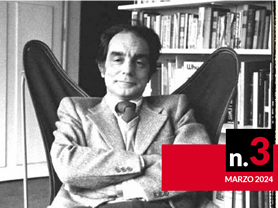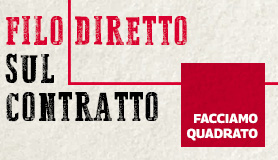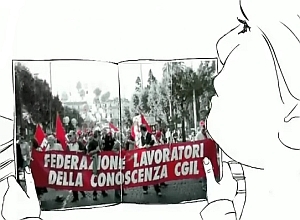Princeton prof celebrates Nobel Prize win by returning to the classroom
It's a matter of duty or pride to go back and do one's job," Haldane said


Princeton-
The phone started ringing at 4:30 a.m. Tuesday.
A startled F. Duncan Haldane, who had been asleep in his Princeton house, grabbed the phone and was greeted by a voice from Sweden with unexpected news.
The veteran Princeton University professor had won the Nobel Prize in Physics for his pioneering theoretical work on "exotic" phases of matter."I feel very gratified," the modest, British-born physicist said at a crowded press conference later in the day.
After learning he had won the top prize in his field, Haldane did what he always does on Tuesday mornings. He got dressed and went to campus. By 11 a.m., he was standing in front of a blackboard in Jadwin Hall teaching his graduate class in electromagnetism.
"Well, of course. It's a matter of duty or pride to go back and do one's job," Haldane said.
The professor said he felt like he owed it to his students to show up, even on the biggest day of his professional life. They greeted him with applause and cheers as he walked into the classroom.
"Any one of them could discover something tremendous and new and win a Nobel Prize," Haldane said.
Haldane shares the 2016 Nobel Prize in Physics with David Thouless of the University of Washington and J. Michael Kosterlitz of Brown University. All three are British-born scientists working at U.S. universities.
"They have used advanced mathematical methods to study unusual phases, or states, of matter, such as superconductors, superfluids or thin magnetic films," the Royal Swedish Academy of Sciences said in announcing the award.
Though all three men did their pioneering work on matter in the 1970s and 1980s, the full impact of their theoretical discoveries have not been felt until recently as other scientists have used their work for new research.
Their discovering about the unusual properties matter displays under extreme conditions, including intense heat and cold, could be used to help develop new materials for electronics, superconductors or quantum computers.
Princeton University president Christopher Eisgruber majored in physics while an undergraduate at the university, but he did not attempt to explain Haldane's complex research.
"I am utterly unqualified to explain Dr. Haldane's work. I will leave that to him," Eisgruber said, introducing the Nobel Prize winner at an afternoon press conference.
Wearing a purple shirt with no tie, a light-hearted Haldane explained some of his discoveries and said he hopes they will lead to something bigger, including quantum computers far more powerful than current computers.
"I can see now that this whole field has burgeoned and spread as this new way of thinking has led to new discoveries," Haldane said.
Born in London, Haldane earned his bachelor's degree and doctorate from the University of Cambridge. He worked as a physicist at Institut Laue-Langevin in France and as a professor at the University of Southern California and University of California-San Diego.
He served as a member of the technical staff at AT&T Bell Laboratories in Murray Hill from 1985 to 1988 before joining the Princeton faculty in 1990. He lives in Princeton with his wife, Odile Belmont.
Haldane said he left his native Britain, in part, because U.S. institutions allowed him to focus on pure science instead of practical discoveries.
"You can't get up in the morning and say I'm going to discover something extremely useful," Haldane said.
He will split the 8 million Swedish krona prize from the Nobel committee, worth about $930,000, with the other two professors. Thouless will get half the prize for his discoveries, worth about $465,000, the Nobel committee said. Haldane and Kosterlitz will split the remaining money, worth about $232,500 each.
When asked about how he would spend the cash, Haldane said, "Well, I'm going to give a lot of it to the IRS."
Haldane joins at least four other current Princeton faculty members who have a Nobel Prize in physics, including Philip Anderson, his adviser when he was a student at Cambridge.
At the press conference, Haldane was asked whether a Nobel Prize comes with a raise at Princeton.
"I guess," Haldane said, gesturing toward the Princeton University president seated beside him.
"It's one we're happy to give," Eisgruber said.
https://www.nj.com/education/2016/10/princeton_physics_professor_celebrates_nobel_prize.html





